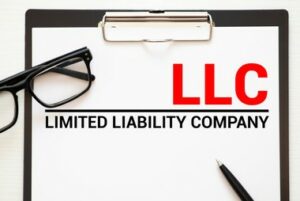What to Know About Incorporation and Taxation
Summary: Are you considering incorporating or forming an LLC? What are the practical and financial implications? Click through to learn the advantages of moving beyond a sole proprietorship.
Operating as a sole proprietorship or general partnership is the least complicated way to run a business, and many small businesses never move beyond that. But businesses that go with the easy option may be missing out on some advantages:
To separate the personal from the business. In the eyes of the law, a sole proprietor has full responsibility for his or her business. That’s good for owners who want simplicity: Expenses may come out of the owner’s personal bank account, and documents relating to the business are signed by the owner. However, if a customer sues or creditors seek action, the business owner is personally liable, meaning his or her personal assets and savings can be at risk. Incorporating or forming an LLC protects the owner and stockholders against personal liability.

To prevent misunderstandings among founders/partners. When your business has more than one partner, there can be arguments over how equity should be split, no matter how close the owners may be. Incorporating and issuing stock to the founders can help alleviate misunderstandings among equity splits. Even an LLC that doesn’t issue stock will have a framework that outlines how ownership is split.
To allow issuance of stock options. One option for startups that have incorporated is to offer stock options or equity in exchange for services. For employees, the options are a valuable benefit that might offset a low salary; for vendors or contractors, the options might be an inducement to lower the price of goods or services. You might want to come up with a pre-incorporation agreement stating that someone will get equity on incorporation, but it’s better if you incorporate first and then make such offers.
To establish business credit and get funding. Venture capitalists and other investors often prefer to work with corporations, since they allow for different classes of stock. Even if you’re not looking for venture capital or angel funding, you still may benefit from a formal business structure. Owners in partnerships and sole proprietorships may need to sign contracts in their own name. But once you form an LLC or corporation, the business itself begins its own credit profile.
To give your business more credibility. Adding an LLC or Inc. after your company name boosts your credibility in the eyes of some customers. In fact, a formal business structure is required in some industries to win certain contracts. Some larger businesses are more comfortable hiring a business than a sole proprietor to do work.
To offer potential tax benefits. Sometimes, corporate tax rates are lower than individual tax rates. Plus, there are additional tax benefits and deductions for corporations that are not available to individuals. By incorporating, you’ll lower what you owe in self-employment taxes — but not always. An LLC’s profits and losses pass through to the owner’s personal tax return and may offset your personal income tax liability with business losses. Be sure to consult a tax professional before assuming you’ll get a tax break by incorporating.
To have your business live on. Sole proprietorships are dissolved when the owner dies or retires, but that is not true with corporations. The ownership shares of a corporation can be sold, bequeathed or given to others. A corporation exists until articles of dissolution are filed to close it.
There are multiple ways of incorporating. What’s the right format in your situation? Work with financial and legal professionals to make the decisions for the next step with your business.
©2021
